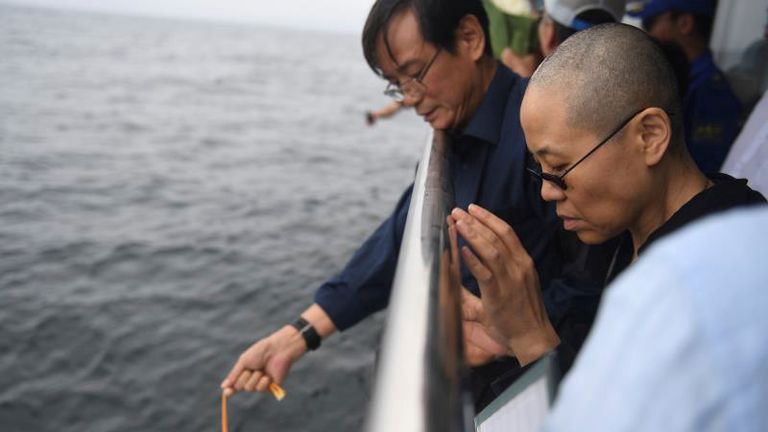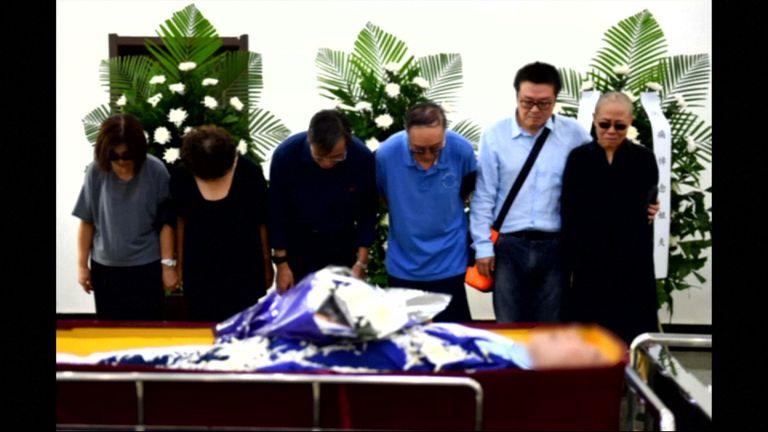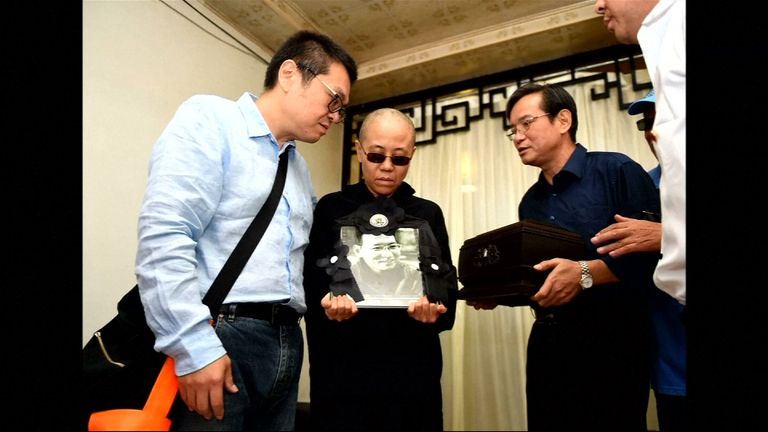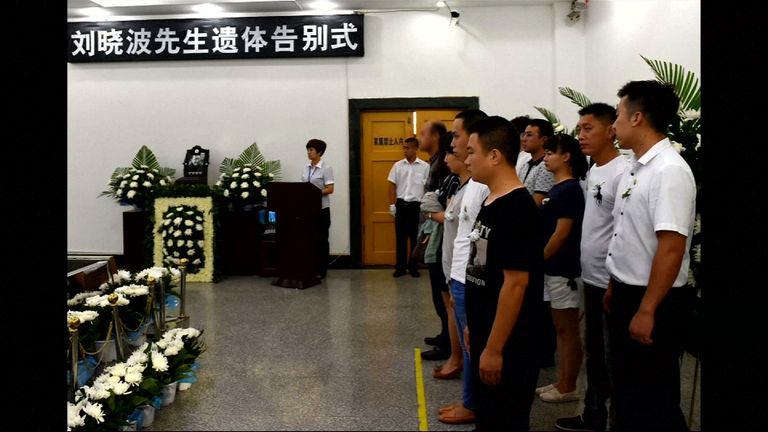Nobel winner Liu Xiaobo's ashes scattered at sea
Supporters say the sea burial is a tactic to obliterate all physical memory of China's best-known political prisoner.
Saturday 15 July 2017 14:58, UK
Nobel Peace Prize laureate Liu Xiaobo has been cremated in a private ceremony and his ashes scattered in the sea, Chinese authorities have said.
The 61-year-old was reported to have been laid to rest at a "short mourning service" early on Saturday morning, according to his "family's will" and "local customs".
State officials said Mr Liu's family scattered his ashes at sea just hours after the cremation, releasing a state-shot video showing Mr Liu's wife, Liu Xia, lowering a white circular urn into the water.
Jailed for 11 years in 2009 for "inciting subversion of state power", he died from liver failure under guard inside a hospital in northeast China on Thursday.
The lack of a permanent resting place will prevent family, friends and supporters of Mr Liu from paying their respects at his grave.
Photos released by the government showed relatives gathered for the ceremony, with a large banner that read: "A farewell ceremony for Mr Liu Xiaobo".
With the coffin surrounded by white chrysanthemums, Mozart's Requiem was played before the cremation.
Chinese officials said Mr Liu's friends were also in attendance, but they have been disputed this.
Mo Zhixu, a dissident writer, was unable to identify a single friend of the political prisoner at the ceremony which he labelled "just a big performance".
Looking at the state-supplied photos, he said he thought the young men with short cropped hair who can be seen in some shots were security men monitoring the dead man's wife.
She has endured what amounts to house arrest since Mr Liu was awarded the Nobel Peace Prize in 2010, despite never having been convicted, or even accused of any crime.
On Friday, a local government spokesman described Mrs Liu as "a free woman", however there is doubt over the veracity of that claim.
Friends and supporters say they have not been able to contact her for three days.
::
Beijing was heavily criticised for refusing to allow Mr Liu to leave China for treatment abroad.
In response, authorities released videos of him in hospital, designed to paint a picture that he was being treated well.
But far from silencing critics, many say it shows the country's inhumanity in denying a dying man his final request.
Heavily censored state media has made little mention of Mr Liu's death, with the exception of Communist party controlled tabloid The Global Time.
Despite international media lauding him as a tireless advocate for democracy, the paper described him as "paranoid, naive and arrogant", asserting that "Chinese society opposes and despises him".







